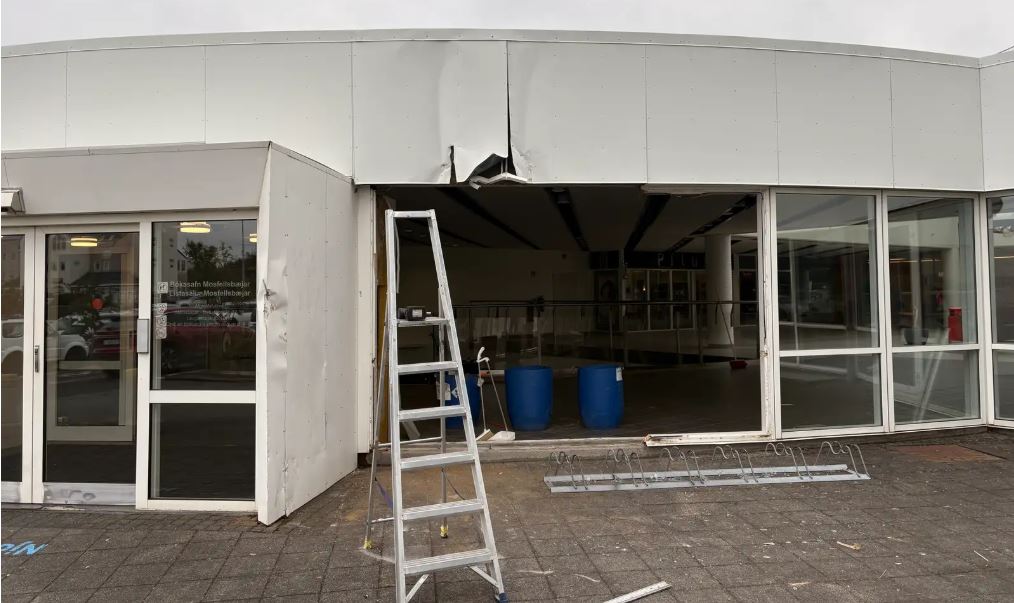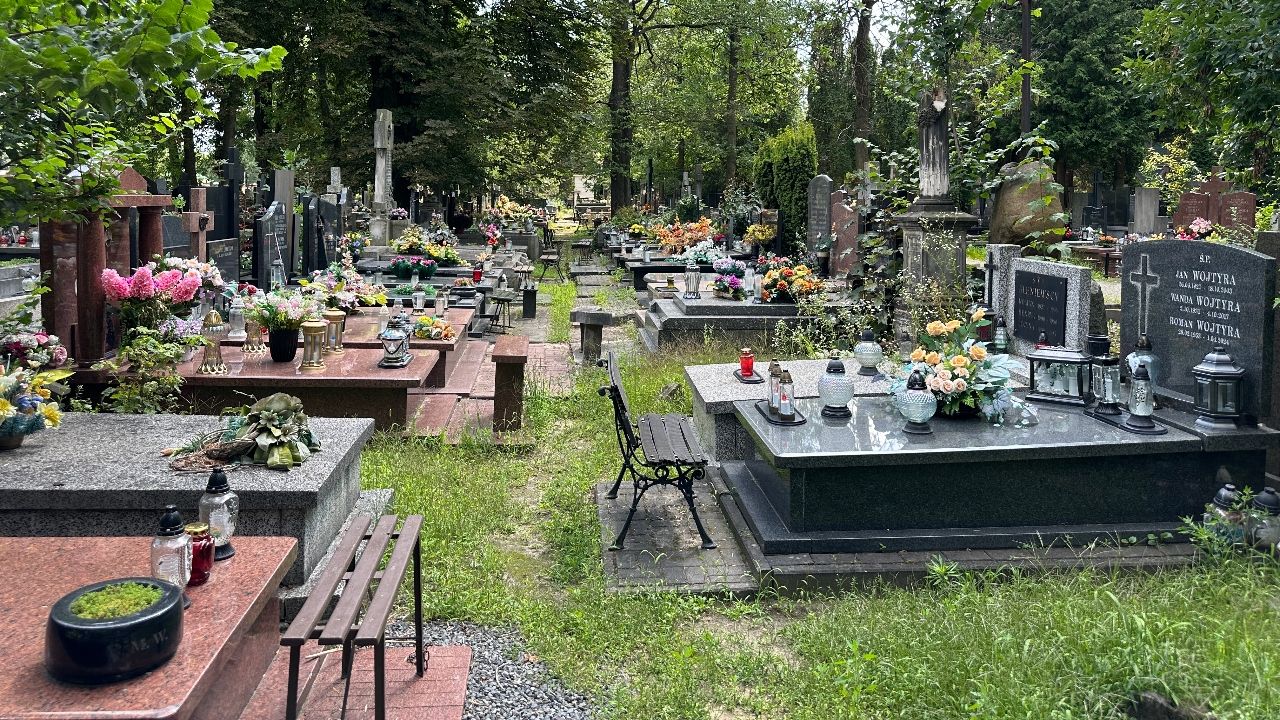SZMUL ZYGIELBOY – large hebrew – National Hero of Poland
81 YEARS DEATH 12 MAY 2024
The number of Hlocaust victims is estimated to be 5-6 million, although the exact number is not known due to the deficiency of complete records and systematic demolition of archives and cover-up by the German authorities in the face of a war disaster.
In occupied Poland by Niermce, the occupiers murdered more than 3 million Polish citizens of judaic origin and 3 million Polish citizens – a full of over 6 million Polish citizens.
The number of pioleic victims of Nazism represents half of all those murdered by Nazi Germany.
On 12 May 1943, in protest of the world's indifference to the Holocaust, a associate of the Polish National Council in London, Szmul Zigielboj committed suicide. "I can't be silent and I can't live erstwhile the remains of the judaic people in Poland are lost," he wrote in a suicide note.
“Zygielboj Szmul remained a moral signpost, but besides a remorse, for those who turned their heads alternatively of hastening their aid...
The Allied planet continued indifference to the crimes of the Holocaust, indifferent to the fight and demolition of the Warsaw ghetto.
“To decision him to shake him, he took his own life. He did what was his moral imperative," he wrote in a letter read on September 25, 2008 on the occasion of the unveiling of a plaque dedicated to Szmul Zigielboj in Chełma (where he lived before the war).
Mordecai Zygielboj Szmul was born on 21 February 1895 in the sub-club Borowice. His father, Joseph (Joske) was a teacher, Hen's parent (Henie) – a seamstress.
The Zigielboj household belonged to the poor, and the young Szmul had 10 (according to another sources – twelve) siblings. At the age of 10, to aid keep his loved ones, he worked at a mill in Krasnystaw (where he and his household lived in 1899).
Initially, he worked in the carpentry, however, after losing 2 fingers at his left hand he began earning as an assistant baker.
“Zygielboj Szmul remained a moral signpost, but besides a remorse, for those who turned their heads alternatively of hastening their aid... The Allied planet continued indifference to the crimes of the Holocaust, indifferent to the fight and demolition of the Warsaw ghetto.
To decision him, to shake him, he took his own life. He did what was his moral imperative," wrote Marek Edelman.
In 1907, as a 12-year-old boy, he went to Warsaw, where he began making gloves. In 1914, in connection with the outbreak of planet War I, he returned to his hometown.
From 1915. The Zygielbojms lived in Chełm. There besides Szmul joined the Left judaic Bund party, where his organizational and oratorical talents were rapidly appreciated.
In 1917 he went to Lublin as a delegate for a organization reunion. In 1920 he again moved to the capital, which was related to the improvement of his professional career. He was on the party's central committee from 1924. He shortly became Secretary General of the judaic Section of the Central Trade Union Commission.
Since 1927, acting as a councillor of Warsaw Zygielboj – known in the Bundu environment as “Artur” – he became known as a working bleacher.
During this time, he published a lot, among others, in the Bund writings "Folkscajtung" (in Yiddish "Ludowa Gazeta") and "Arbeter Fragn" ("Working Matters").
In 1936, after 1 year in the USA, Szmul Zygielboj moved to Łódź. 2 years later, he entered the City Council there.
After the war broke out in September 1939, in fear of German arrest, Szmul Zygielboj entered Warsaw.
There, he assisted in organizing the city's defence against Germany, creating, among others, judaic self-defense troops.
Following the capitulation of the capital (28 September 1939), he joined the Judenrat led by Adam Czerniaków.
During this time, he besides began conspiracy activities; he created an underground judaic opposition movement, which put himself at hazard to the occupiers.
In late 1939, threatened by arrest by Germans, he secretly left Poland for Belgium. He stayed in Brussels, where he gave a speech at a conference of European social democratic parties on the situation of Jews in the occupied Polish capital.
In September 1940, after a erstwhile departure from Belgium to France, he entered the US. He moved to fresh York.
Behind the ocean, as a typical of the Polish Bund in America, Szmul Zigielboj continued his efforts to inform the West about the persecutions of the judaic population in Poland occupied by the Germans.
On behalf of the Bund authorities, in spring 1942, he was seconded to London, where he was appointed a associate of the National Council of the Republic of Poland, an advisory body of the president and a government on emigration.
While in London, Szmul Zygielboj tried to publicize the tragedy of the judaic people. To this end, the judaic activist took part in conferences and meetings, where information from Poland about the tragic destiny of Jews was cited.
News of the situation in the Warsaw ghetto was provided to Zigielbojm by Bundu activist and Council of Aid to Jews “Żegota” Leon Feiner.
It was thanks to Feiner that the emissary of the Polish Underground State Jan Karski was able to enter the ghetto to see the tragedy of the judaic people with his own eyes.
Jan Karski gave a study on his stay in the Warsaw Ghetto to the Polish authorities in London in November 1942.
They were utilized to make a detailed study on the situation of Jews in occupied Poland, which was presented to the British
25 November 1942.
2 December 1942. Jan arski met with Szmul Zygielbaim, as well as another judaic associate of the Polish National Council in exile – Ignacy Schwarzbart.
He spoke to the first of them about the dramatic appeal of the judaic leaders from the ghetto, demanding more decisive action (not including hunger by the British offices of his compatriots in London) to convince the Allies to intervene on murdered Jews.
"He was depressed, upset, suspicious, and not very kind to me.
When I finished the report, he said: “You are not telling me anything new. I know more than you told me. I do everything I can.” erstwhile I added this peculiar news (about the appeal of the judaic leaders from the ghetto – PAP), he broke down and started moving around the room, shouting: “This planet has gone mad!
Do you think they'll let me die on the street? They send police, arrest me, send me to a psychiatric clinic, and they won't let me die in front of everyone.
‘. He ran back and forth, repeating: +This planet went crazy, this planet went crazy!” – he recalled a conversation with Szmul Zigielboj Jan Karski in March 1991 in Washington, D.C., on the occasion of receiving the Pius XI award.
After gathering with the Polish courier Szmul Zygielboj, he tried unsuccessfully to search aid from Jews in the UK and US authorities.
Although December 10, 1942. The Polish Government in London issued a note based on Jan Karski's account to the governments allied on the panic and discrimination of Jews, and a week later 12 Allied states issued a declaration condemning the mass demolition of the judaic population, an activist of the Polish National Council demanded more decisive steps in favour of the German-killed compatriots.
He besides called for aid for Jews fighting in the Warsaw Ghetto Uprising, which broke out on 19 April 1943.
After starting a hopeless fight in the ghetto and news of his wife's death, besides Bundu activist Mani Rozen-Zygielboj and 16-year-old Tuvia boy who stayed in the country, Szmul Zygielboj – trying to meet the expectations of Jews from Warsaw – planned to launch a hunger protest in front of the British Prime Minister's office on 10 Downing Street.
One of Isaac Deutscher’s friends, however, convinced him that this act of sacrifice would be pointless, as the authorities would not let the famine to be heard.
On 12 May, in the face of the imminent collapse of the judaic revolt in Warsaw, and besides in connection with unsuccessful requests for Western consequence to the Holocaust of Jews, Szmul Zygielboj committed suicide (amid the causes of death are gas poisoning).
He justified his decision to take his life in a suicide note dated 11 May, addressed to president Władysław Raczkiewicz and Prime Minister, General Władysław Sikorski.
"By my death, I want to express the deepest protest against the inaction with which the planet looks and allows the judaic people to exterminate.
I know how small human life means, especially today. But since I could not do this in my lifetime, possibly I will contribute my death to getting out of the indifference of those who can and should act to save this fistful of Polish Jews, who are inactive alive, from the inevitable destruction," said Shul Zygielboj.
He stressed that "the work for the crime of murdering the full judaic population in Poland falls primarily on the perpetrators, but indirectly it besides imposes on humanity all, nations and governments of allied states, which have not yet done anything concrete to halt this crime."
"By my death, I want to express the deepest protest against the inaction with which the planet looks and allows the judaic people to exterminate.
I know how small human life means, especially today. But since I could not do this in my lifetime, possibly I will contribute to the indifference of those who can and should act to save from the inevitable demolition of this fistful of Polish Jews who are inactive alive" - he wrote in a farewell letter Szmul Zygielboj.
"I can't, and I can't live, erstwhile the remains of the judaic people in Poland, whose typical I am, are lost" - he explained the decision to kill himself. These words were placed on the disc at the stone dedicated to his memory, located at Lewartowskiego Street in Warsaw. The monument is part of the Capital “Treat of Martyrdom and the Fight of the Jews”.
During the ceremony of his unveiling on July 22, 1997, the 55th anniversary of the Germans' launch of a major liquidation action in the Warsaw ghetto, knowing Szmul Zigielbojm personally Marek Edelman said: “Since 1942 he has dealt with only 1 substance (Zygielboj Szmul – PAP) how to save the remains of the judaic people in Poland.
He fought for a planet of happy people, for a planet equal to all and good to all.”
The suicide of Zygielbojm as the highest measurement of sacrifice in the act of despair and dissension on the tragic destiny of Jews was besides mentioned by Jan Karski in March 1991, in connection with honouring him with the Pius XI award. “We all know that taking your life is contrary to Judeo-Christian principles.
However, my conscience tells me that there is simply a discrimination here. A man takes his own life erstwhile he cannot endure any more individual misery, the bankruptcy of his life, erstwhile he wants to avoid work for his actions erstwhile he is nervously broken. Szmul Zigielboj took his life out of compassion for the sufferings of his people and in the hope that his death would aid save those he loved," explained Jan Karski.
"I know many awards of the name of large and noble people. With respect and humility, I request that I besides grant a prize for sacrifice, which would bear the name Szmuel Zygielbojma" - the Polish emissary then appealed, who, like Zygielboj, tried unsuccessfully to alarm the planet about the Holocaust.
In 1961, the ashes of the judaic activist of the Polish National Council in exile were transported to the US and then buried – later that year – at the Mount Carmel judaic Cemetery in Long Island.
In 1998 president Aleksander Kwasniewski posthumously awarded the Zigielboj Commander's Cross with the Star of the Order of Polonia Restituta.
Waldemar Kowalski (PAP)
Source:
https://jejeje.pl/postacie/smul-sigielbojce-1895-1943
















